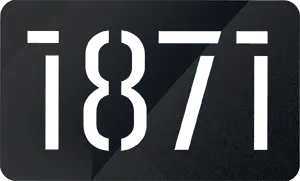
As companies expand their search for top talent and remote work becomes more widespread, many technology teams end up with colleagues working all over the map. The best ideas stem from communication and collaboration among individuals with diverse backgrounds and skillsets. But how do we support a culture of new ideas when our teams aren’t physically all in the same place?
We’ve faced this challenge at CSC Corptax®. We have a large remote workforce, and we’ve taken steps to make teamwork and communication part of our values and culture. To further support innovation, we also embrace career ownership and team members raising their hands to take on new challenges.
Ryan McCullagh a CSC Corptax software engineer since 2017, says the company has found ways to make remote work, well, work. “Groups are never isolated, and we’re encouraged to reach out within and outside our teams for support. We use Microsoft Teams® so anyone can feel free to communicate with any other developer or team,” he says.
CSC Corptax’s culture of sharing knowledge includes everyone, Ryan says, and management is very approachable. “No one is intimidating. You never feel uncomfortable reaching out to a person just because they’re not on your team.”
The relationship between the software and product teams are also different than what can be found in other companies. Typically, one team will gather requirements which are sent to the software developers for implementation. “At CSC Corptax, we have a dedicated Product Team that can provide direction to software developers when there’s a new feature that needs to be implemented or other enhancements to the core product. The Product Team is a huge resource and benefit that makes sure our software is delivered on time and as expected,” Ryan says.
CSC Corptax software engineers spend most of their time coding, but a good amount of research is also necessary. Ryan has learned so much about CSC Corptax systems and code, he’s become a resource for other developers. “We have a lot of code and every team member can’t know every part of the code. With the experience I’ve gained learning our systems and code, I can share my knowledge with colleagues and new hires,” he says.
New hires at CSC Corptax aren’t expected to know everything that comes their way either. “We document everything, so when a new member joins the team, they get a document that tells them exactly how to set up their computer to run our code,” says Ryan, adding that new hires are encouraged to make notes and enhance the document so that the next person has an updated version.
The new team members are also encouraged to ask questions, which is part of the CSC Corptax culture of teamwork and collaboration. “When people ask the right questions, they can learn a lot faster and not get stuck spinning their wheels when another team member might have an answer,” he says.
Since CSC Corptax has been around for more than 45 years, there are processes in place for code reviews and coding standards. This benefits new team members so they pick things up faster. It also benefits the work-life balance for all the teams. “All of our code goes to code reviews so we can catch bugs before they make it to production. This means I’m not up at 3 a.m. trying to fix something,” Ryan says.
Everyone, from new hires to those firmly established in their careers, should volunteer for projects at work. “Have an open mind when it comes to working in new areas. This applies to me at CSC Corptax, but also for any project, team, or company you work for,” he says.
CSC Corptax is fortunate to have a history of remote employees and teams being successful. For others, this change in working environment is a drastic shift, one we don’t see ending anytime soon. It all comes down to a culture of open communication that runs throughout the organization. When people know they’re free to ask questions and collaborate with others to solve a problem, good things happen.
Join as an 1871 Early Stage Member.
Attend info sessionSubscribe to our ICYMI newsletter.
Share this post:

